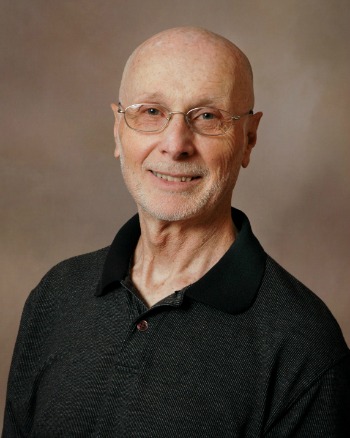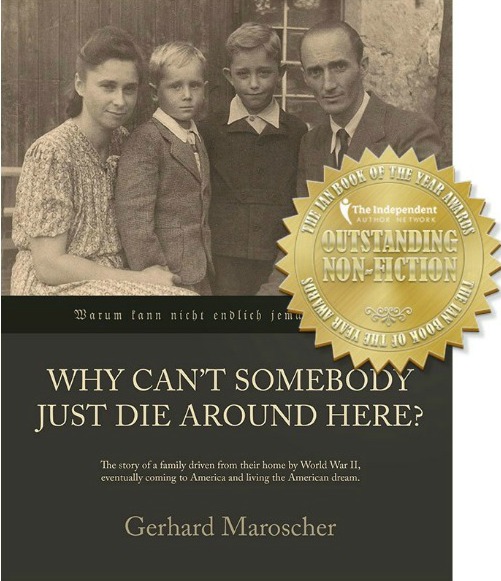Gerhard Maroscher
|
Gerhard Maroscher was born in Romania during WWII to ethnic German (Transylvanian Saxon) parents. His father was fighting the Russians while his mother tried to save her two sons. As child Gerhard lived in Romania, Hungary, Communist East Germany, and West Germany. In 1952 the reunited family emigrated from West Germany to the USA. Gerhard attended public schools and graduated with a Mechanical Engineering degree from The Ohio State University.
Gerhard worked in industry for 34 years after having served in Vietnam. Following his retirement at the age of 59, he began a second career as a high school German teacher. He began to write quirky short stories for his students to encourage reluctant readers. The students and his wife loved the short stories, both encouraging him to publish all four German short story readers. While teaching and creating his short stories, Gerhard began to consider writing a book about the history of his family: a story of danger, fear, loss, courage, near starvation, perseverance, and miraculous survival. Gerhard had been collecting information for this book for decades. He had listened to his parents talk about their experiences and kept a file of conversations and voice recordings. Combined with the recordings, the documents preserved by his parents, and further research made it possible for him to write this amazing story. Now that his family’s story is published he stays busy marketing the book, practicing yoga, teaching German to adults, and agreeing with everything his wife says. |
Why Can't Somebody Just Die Around Here?
|
Memoir
Gustav’s and Helene’s peaceful rural life in Transylvania (part of Romania) is filled with hope for the future. The events of WWII force Helene to flee her homeland with her two young sons. She is transformed from a shy inexperienced young mother into a lioness who will do anything to save her children. Gustav, a teacher, becomes a reluctant warrior in three axis armies, and a POW of the Russians. The family, separated by the war, miraculously survives both the war and near starvation afterward. Helene with her two sons, and Gustav flee from their respective communist countries and are re-united in American occupied Bavaria. Seeking a better life, the family immigrates to the USA and lives the American Dream. Through perseverance and hard work Gustav becomes an engineer who is part of the team that puts a man on the moon. After Gustav’s early death, Helene opens her own tailoring business, is able to pay off the mortgage, and live comfortably in old age. The book speaks of the resilience of the human spirit, dedication to family, and the love of freedom. |












